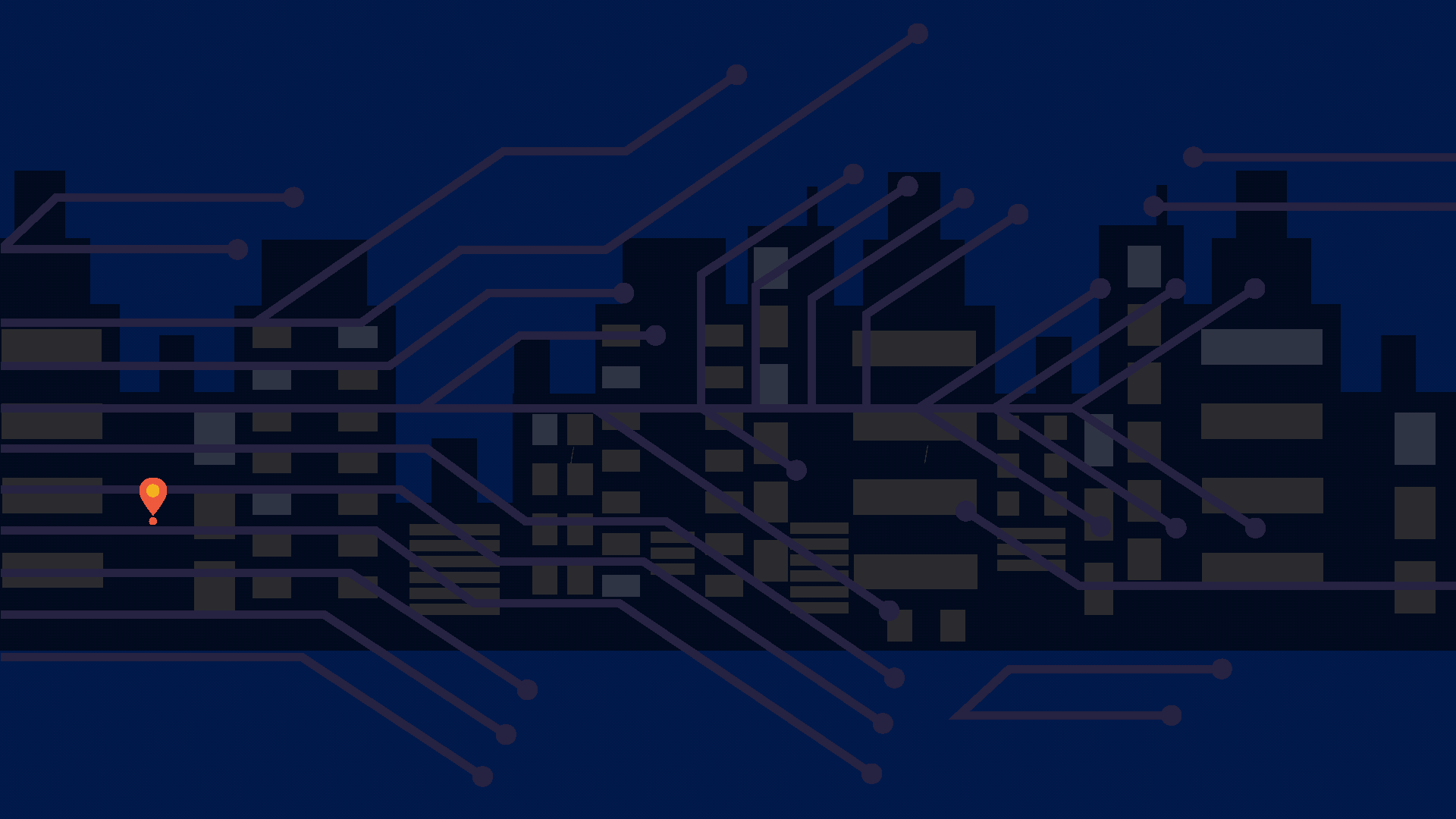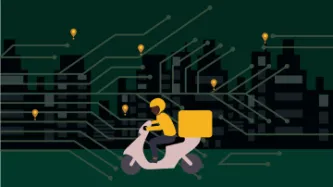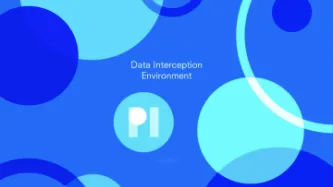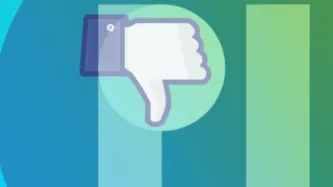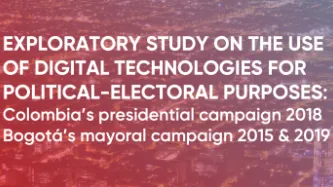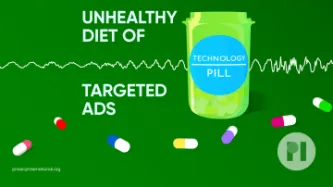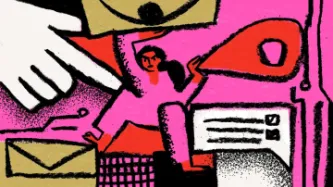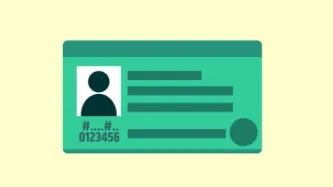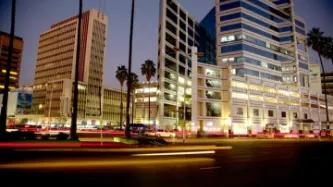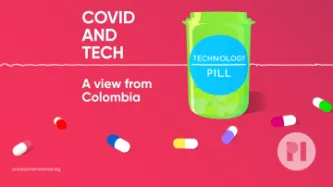Advanced Search
Content Type: Video
Please note the views expressed in the video are the interviewee's own and do not necessarily reflect the views of PI.
Driver X (he wishes to remain anonymous) has been working for Uber for five years. After working for Uber for two and half years, he suddenly received a message telling him that his account had been temporarily suspended and asking him not to call Uber while the investigation was pending. He was baffled, as he had an excellent record and rating, with plenty of positive…
Content Type: Long Read
What if your boss was an algorithm? What would you do if your employer suddenly fired you or reduced your pay without telling you why? And without being willing to give you a reason when you ask for one?
This is not science fiction or some far-fetched reality. Millions of people worldwide are working in the gig economy sector for companies like Uber, Deliveroo, Bolt, Just Eat… And this could be the future of work for people working outside the gig economy, as surveillance technologies are…
Content Type: News & Analysis
To add your voice to the letter below, which we'll be sending to gig economy companies like Uber, Deliveroo, Bolt, Amazon Flex, Just Eat, Free Now, and Ola, sign the Managed by Bots petition. (PETITION IS NOW CLOSED, SEE UBER'S RESPONSE TO OUR CAMPAIGN LETTER. SEE DELIVEROO'S RESPONSE.
Worker Info Exchange (WIE), the App Drivers and Couriers Union (ADCU), Privacy International (PI) and other civil society organisations* are today writing to you with urgent questions about the exploitation of…
Content Type: Video
Update: Pa has since won a settlement from UberPlease note the views expressed in the video are interviewee's own and do not necessarily reflect the views of PI.Pa used to work for Uber. After some time, Uber started asking him to submit a picture of himself to the platform to confirm it was indeed him who had completed the job. However, with time, the frequency of the requests increased. In the beginning, the requests for a picture only happened once a week, but as time went by Pa told us that…
Content Type: Explainer
Before you get started
It would be useful to have:
Oracle Virtualbox (version 6.1 or later)
Genymotion, a virtual phone or a physical device
Unarchival software (7Zip, Peazip, Keka, Ark etc)
Android Developer Bridge (adb) (You can also install Android Debug Bridge, which is adb without the full Android SDK platform)
Web Browser
A small amount of linux/unix knowledge will help!
Setting up the Data Interception Environment
Download the latest release of the Data Interception…
Content Type: News & Analysis
What if we told you that every photo of you, your family, and your friends posted on your social media or even your blog could be copied and saved indefinitely in a database with billions of images of other people, by a company you've never heard of? And what if we told you that this mass surveillance database was pitched to law enforcement and private companies across the world?
This is more or less the business model and aspiration of Clearview AI, a company that only received worldwide…
Content Type: Video
<br />
Links
Read more about the ICO's provisional decision
Support our work
You can find out more about Clearview by listening to our podcast: The end of privacy? The spread of facial recognition
Content Type: Press release
Today, following an in-depth investigation, the UK Competition and Market Authority (CMA) assessed that the competition concerns can only be addressed by Facebook selling Giphy in its entirety. This is a very significant decision. Facebook, the largest provider of social media sites and display advertising in the UK, acquired Giphy, the largest provider of GIFs. The merger would further increase Facebook’s dominance and Facebook would have benefitted from Giphy’s data collection practices and…
Content Type: Press release
In what could be seen as one of the strongest sanctions against the company in Europe, the Information Commissioner’s Office (ICO), which is tasked with enforcing data protection legislation in the UK, has today announced its provisional intent to issue a potential fine of £17 million against the controversial facial recognition company Clearview AI.
Clearview AI, which only received worldwide attention following a New York Times report back in January 2020, is a company whose business model…
Content Type: Report
Democratic engagement is increasingly mediated by digital technology, from campaigning to election results transmission. A key example of the application of new technologies to democratic processes is the growing practice of micro-targeting in political campaigning around the globe, including Colombia.
In 2018, the mayor of Bogotá, Enrique Peñalosa, was accused of hiring Cambridge Analytica during his 2015 election campaign. That same year, Cambridge Analytica’s former director acknowledged…
Content Type: Video
<br />
Links
Daniel's petition: https://www.change.org/p/uk-parliament-ban-advertisers-from-targeting-eating-disorders
PI's diet ads report: https://privacyinternational.org/long-read/4603/unhealthy-diet-targeted-ads-investigation-how-diet-industry-exploits-our-data
More information on Instagram, targeted ads, and Frances Haugen - the Facebook whistleblower: https://privacyinternational.org/news-analysis/4622/reduce-facebooks-harms-teens-target-its-data-hungry-business-model…
Content Type: Long Read
At Privacy International, we challenge companies and governments who infringe on our privacy and facilitate, as well, violations of other human rights.
Our most recent challenge is against Clearview AI, a company that trawls the internet to save photos of our faces to form part of their biometric database to sell. We have filed complaints alongside 3 other organisations with regulators in the UK, France, Italy, Austria and Greece. Our goal is a clear message that there is no place in society…
Content Type: Case Study
This written piece is part of PI's wider research into the tech behind ID systems around the world. Click here to learn more.
Overview
Aadhaar (Hindi for ‘foundation’) is India’s ID programme, the largest in the world, surpassing 1 billion sign ups in just under 6 years. This programme aims to give every citizen a unique, biometrically-verifiable identification number. Each user receives a card with their number on it, which can be cross-referenced with the biometric data held in a government…
Content Type: Examples
Myanmar’s Covid-19 Economic Recovery Plan (CERP) includes more than 50 measures over a 15-page document. With only two items being assigned a specific budget, the Economic Recovery Plan appears largely aspirational.
Beneficiaries and relevant areas to target are picked from data from township officials, recent surveys, the 2014 census, civil society organisations and local news sources. The Union government stated they have released a list of 16 criteria used to target transfers. At the time…
Content Type: Examples
The National Commission Action for Sierra Leone is providing one-off cash transfers to households in response to the effects of the Covid-19 pandemic.
Cash recipients are being selected through field action from NaCSA and other governmental bodies. A scoring matrix based on ten assessment areas of potential vulnerability is used to consider whether a person is eligible to receive this disbursement. A score of more than seven vulnerabilities means an individual is eligible for support. Having…
Content Type: Examples
In 2020, after the COVID-19 pandemic hit Mozambique, the government started implementing the National Response Plan of Social Protection which aims to pay cash transfers to 1,582,179 beneficiaries. These cash transfers are done via mobile phone through the service Mpesa.
Throughout the roll-out of the programme, there have been reports of people being threatened and harassed over the phone by thugs demanding that benefit claimants hand in the phones to which the benefit is linked. It is not…
Content Type: Examples
In 2020, after the COVID-19 pandemic hit Mozambique, the government started implementing the National Response Plan of Social Protection which aims to pay cash transfers to 1,582,179 beneficiaries. These cash transfers are done via mobile phone through the service Mpesa.
Since then, there have been reports of people having registration and access difficulties, such as having wrong phone numbers associated with their names, and hence not being able to claim their benefits.
Adding to this,…
Content Type: Examples
Kwenda is a social protection program started in Angola in May 2020 to support people affected by the Covid-19 pandemic and it is expected to last for 3 years. The program is backed by 420 million USD funding from the World Bank and has 4 distinct components.
In July 2021 the Angolan government announced that they were in a phase of ‘data validation’, where government teams visit neighbourhoods with ‘systemically generated’ provisional lists of beneficiaries. The government describes these…
Content Type: Long Read
Zimbabwe has a history of state led surveillance that is carried out more for political gain than for the investigation of legitimate criminal activities. During former President Mugabe’s 37 year rule the government used laws and state security structures to carry out targeted surveillance of persons of political interest and more generalised mass surveillance of the population.
Specific laws such as the Interception of Communications Act as well as mandatory SIM-card registration regulations…
Content Type: Long Read
In a previous article, we mapped the influence of the Chinese company Huawei across the world and how their sales of smart city infrastructures are contributing to the reshaping of our public space.
We should be alarmed by some of their product deployments – such as the installation of facial recognition technologies in countries with concerning human rights records. But also the deployments of facial recognition technology in countries without strong data protection laws are as such…
Content Type: Long Read
The smart city market is booming. And with a booming market comes companies that are profiting and reshaping our public space, like the Chinese tech company Huawei.
While the term ‘Smart City’ is a broad one that encompasses many different initiatives, some with little to no impact on our privacy and other rights. Certain issues are nevertheless recurrent: the lack of transparency around public-private partnerships, the absence of consultation, and the appetite for a “tech quick fix…
Content Type: Examples
As a result of the challenges emerging from Covid-19 to disburse financial assistance, the government of Paraguay decided to change its food security programme, Ñangareko, from an in-kind benefit to a bank transfer consisting of a one-off payment of PYG 500,000 (= +/-73USD).
The Ñangareko Programme is aimed at those affected by Covid-19 which are stated to include the most vulnerable, informal workers, persons without a RUC (the unique taxpayer registry number) or social security, and who don’…
Content Type: Examples
A new COVID-19 Cash Transfer Programme for ID Poor Households was launched in June 2020 to respond to the needs of the most vulnerable groups of the population, including the needs of children aged 0-5 years old, persons with disabilities, the elderly, persons living with HIV/AIDS, and those identified as poor (ID Poor 1 and ID Poor 2) through the existing national ID Poor programme.
Those households identified as eligible beneficiaries need to register with an administrator at commune level,…
Content Type: Examples
The Jordanian government implemented at least 8 different social protection measures in response to the Covid-19 pandemic.
The successful implementation of rapid response projects across social insurance, social assistance and refugee protection was an incredibly important means of protecting low-wage workers and communities facing vulnerable and precarious situations. Within 6 months of the first Covid-19 cases in Jordan, social security measures were put in place to support an estimated 960,…
Content Type: Examples
In January 2021, the World Bank agreed to loan the Lebanese government $246,000,000 to finance an "emergency social safety net" project in response to Covid-19 and Lebanon's ongoing economic crisis.
As part of the project, the Lebanese Government must provide cash-transfers to approximately 147,000 Lebanese households. To be eligible to receive cash transfers, households must be
* Lebanese,
* assessed as living below the World Bank's "extreme poverty line", and
* belong to "pre-defined…
Content Type: Video
<br />
You can find out more from Karisma here: https://web.karisma.org.co/
You can read the report here: https://web.karisma.org.co/useless-and-dangerous-a-critical-exploration-of-covid-applications-and-their-human-rights-impacts-in-colombia/
Content Type: Examples
A welfare benefit being rolled out in Nigerian in response to Covid-19 reportedly relies on highly data-intensive techniques.
The Rapid Response Registration Cash Transfer Project was set up by the Nigerian government to provide support to poor Nigerians located in urban and semi-urban areas that were not receiving any other form of welfare support.
According to statements by the Nigerian vice-president, the Rapid Response Register uses "scientifically validated methods of satellite remote…
Content Type: Examples
A third-party, privately-owned electronic wallet platform is being used to disburse welfare benefits in Honduras.
The Single Voucher is a one-time subsidy delivered through an electronic voucher that can be exchanged for food, medicine and /or medical supplies.
The benefit is disbursed in the form of a voucher that can be used in authorised establishments, namely supermarkets, pharmacies, grocery stores throughout the country. According to a Powerpoint presentation by the WHO and Honduran…

